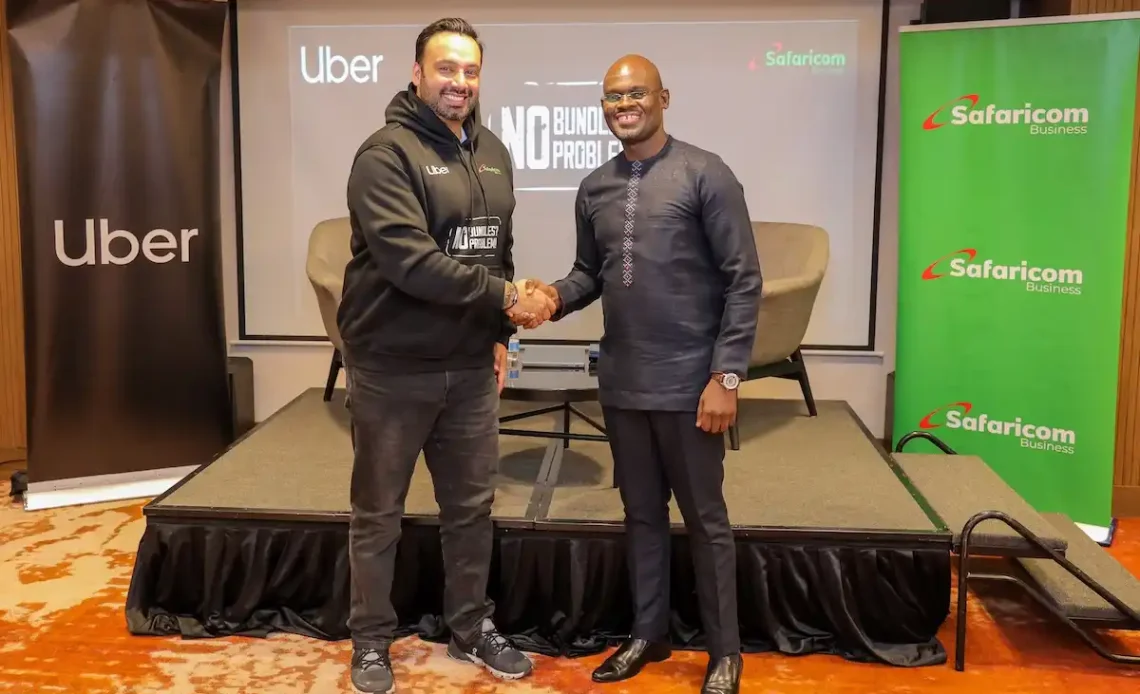
Safaricom and Uber have today announced a new partnership that will allow free use by drivers and delivery partners on the Uber and Uber Eats apps as well as riders, with Uber covering the cost. Through this partnership, consumers and merchants using the Uber Eats platform will also access free data while using the Uber Eats app.
According to company, one of the biggest barriers to accessing its mobility services including Uber Boda is the lack of sufficient access to mobile data. Even though Kenya has made great and commendable strides in internet penetration, access to the internet especially for low-income and those in rural areas is still limited.
Uber’s partnership with Safaricom to provide free data for Kenyans, particularly the youth for whom internet access is a challenge, will enable free access to the Uber app for Safaricom subscribers.
“As a global company that operates locally, it is important to us to understand local nuances of the market we live and operate in. Through this partnership with Safaricom, we can help bridge the gap in accessing data for many Kenyans, by which they will be able to access reliable and safe mobility. For drivers, this represents savings as they will not need to spend money on mobile data while driving on the Uber app,” remarked Imran Manji, Head of East Africa, Uber.
Net Neutrality Implications
Even though this is a good initiative, it still raises Net neutrality concerns. Net neutrality advocate for all data to be treated equally without any special treatment and favoritism for certain apps or services. Safaricom zero-rating an app (making it data-free), even though the cost is covered by Uber, gives the app an unfair advantage over its competitors like Bolt, Little Cab or even smaller competitors.
For this case, Uber users benefit from free data and this may drive more people to using this platform over any other mobility and delivery apps. Net neutrality principles advocate for all internet traffic to be treated equally without prioritization based on business arrangements, regardless of who is paying for the data.
Giving Uber this advantage may limit consumer choice as people may prefer it over other apps as it is cheaper to use in terms of data costs. The other competitors without similar partnerships might argue that this creates an uneven playing field.
Uber may argue that zero-rating the app can be beneficial to those in areas where data affordability is an issue. They can access these services that they would have had difficulty accessing because of data costs. This is still a delicate issue and might end up setting a precedent in the industry which may end up benefiting bigger organizations with the financial muscle to offset the cost and this can push its competitors out of the market.
So, even though Uber is paying for the data, it still doesn’t change the underlying issue of unequal treatment between apps.
Collaborative Partnerships
Commenting on this, Peter Ndegwa, Chief Executive Officer, Safaricom PLC said, “This partnership is part of our goal to provide our customers with innovative solutions that allow them to access vital services even when they do not have data bundles or airtime through collaboration with organisations such as Uber to extend free access of their services to customers.”
To access the free data, one needs to ensure that any VPN blockers are turned off on their phones. Before accessing the free data, drivers and riders are advised to turn Airplane Mode on and off on their phones.
Also Read: Uber raises ride charges by 10% in Kenya after driver protests

